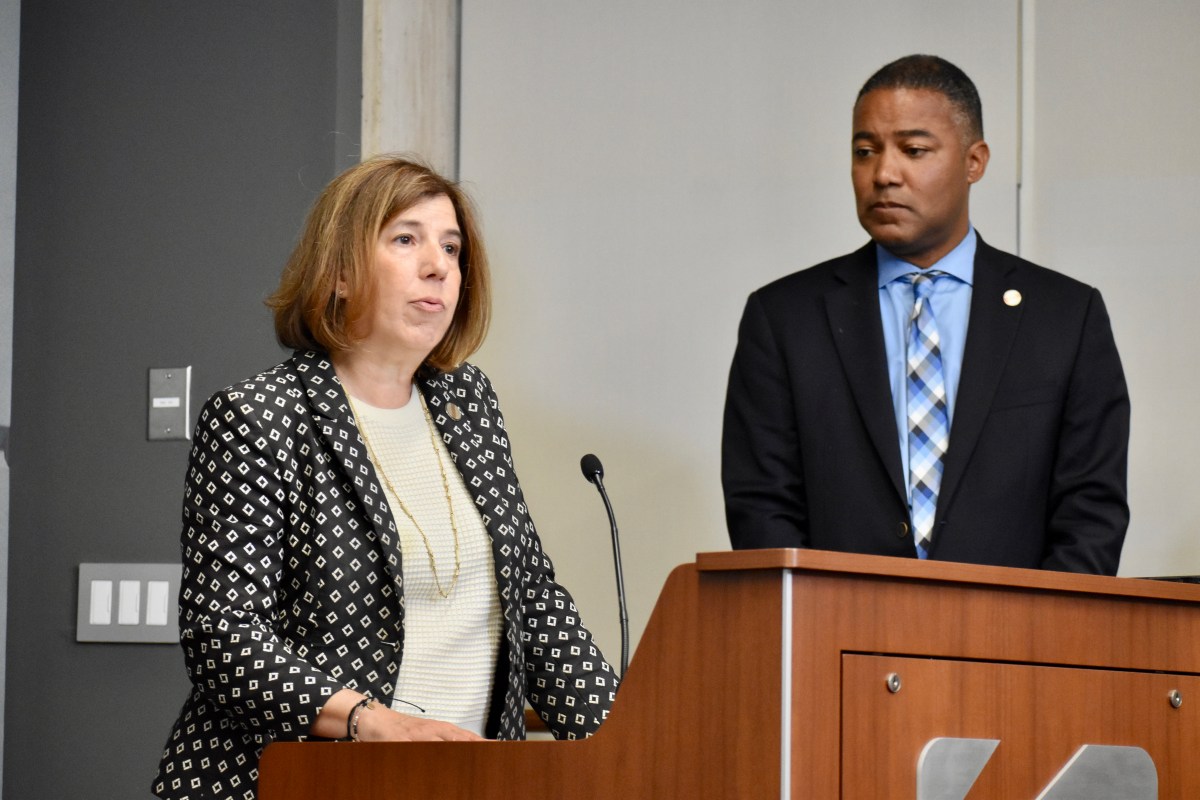KYIV, Ukraine (AP) — Ukraine came under heavy attack from the air and from cyberspace on Tuesday, local officials said, as nearly 600 Russian shells, rockets and other projectiles rained down on a southern region and unidentified hackers knocked out phone and internet services of the country’s biggest telecom provider.
Ukraine also claimed a successful hacker attack against Russia’s national tax system.
Ukrainian President Volodymyr Zelenskyy arrived on Capitol Hill to press U.S. Congress for additional military help, as further U.S. funding is uncertain because of a domestic political dispute.
One person was killed and four others were wounded during 24 hours of Russian bombardment of Ukraine’s southern Kherson region, according to Oleksandr Prokudin, head of the regional military administration. The number of projectiles fired at Kherson was the highest in at least two weeks.
As winter sets in and hampers troop movements, allowing little change along the front line, air bombardment plays a growing role in the war.
Cyberattacks are also a busy battleground. Ukrainian telecom provider Kyivstar said it came under a “powerful” attack by hackers. The company serves more than 24 million mobile customers across the country.
“The war with Russia has many dimensions, and one of them is in cyberspace,” Kyivstar Director-General Oleksandr Komarov said in a statement.
The company didn’testimate when services might be restored. It said its specialists were working with law enforcement agencies and special state services on solving the problem.
Kyivstar’s traffic began dropping at 9 a.m. local time and was nearly at zero by noon, Doug Madory, an analyst at the network integrity firm Kentic Inc., said in a tweet.
“Traffic was slow decline instead of being abruptly cut all at once,” Madory told The Associated Press. He said that was similar to what happened in a March 2022 cyberattack on Ukrtelecom, the country’s legacy telecom, which was then seventh among Ukrainian providers in internet traffic volume.
Kyivstar is Ukraine’s largest destination for internet traffic, Madory said.
But the attack had more far-reaching consequences. It disrupted the air raid warning system in part of the Kyiv region, according to the head of the Kyiv regional administration, Ruslan Kravchenko. Similar disruptions were also reported in the Sumy region of northeastern Ukraine, while some ATMs of state-owned Oschadbank stopped working as a result of the Kyivstar attack, the bank’s press office told local news outlet Suspilne.
Also, a Ukrainian online bank said it fought off a massive distributed denial-of-service attack on Tuesday. A DDoS attack employs a network of distributed computers to direct junk traffic at the target site in an effort to render it unusable.
At the same time, Ukraine’s Main Directorate of Intelligence claimed to have conducted a successful hacker operation infesting Russia’s Federal Taxation Service servers with malware.
According to an intelligence agency statement, the operation infiltrated several central servers and more than 2,300 regional servers, resulting in disrupted communication within Russia’s taxation system and destroying its database and backups.
Moscow made no immediate comment about any attack, and the claim couldn’t be independently verified.
In other developments, Ukraine claimed to have captured a tactically important hill in the Donetsk region, where the front line has barely budged since 2014.
Zelenskyy announced on social media that his troops had taken the foothold, which provides a vantage point over the front line near Pivdenne, a mining town to the northwest of the Donetsk city of Horlivka.
Hanna Arhirova in Kyiv, and Frank Bajak in Boston, contributed to this report.
Follow AP’s coverage of the war in Ukraine at https://apnews.com/hub/russia-ukraine
























